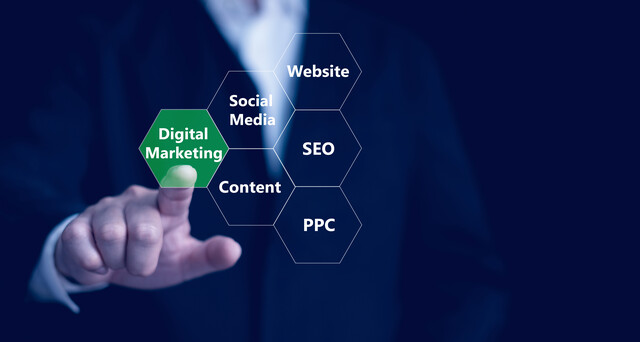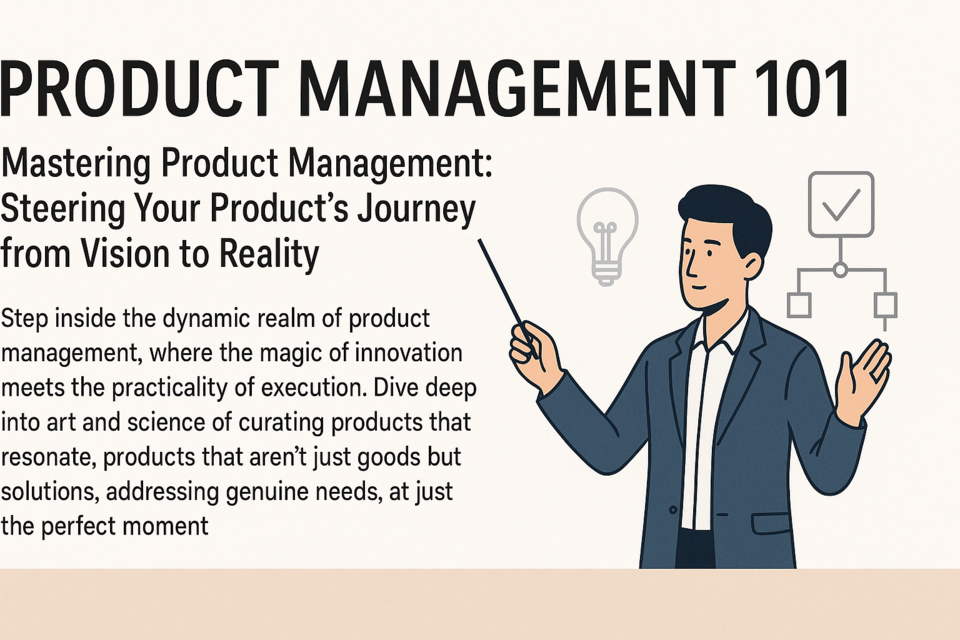Raising start-up capital is an important part of developing your own business as an entrepreneur. Once you are committed to the idea of your company you will need funding to get started. This funding is called startup capital. Startup capital is the fuel that feed the fire and every business needs capital. There are many factors which go into to determining the necessary start-up capital and we will discuss some of them as well as start of financing and methods to restart of capital.
As an entrepreneur it may be difficult to find the level of financing you need as a startup but there are several options. New businesses most often meet resistance because of the risk involved in their funding. The ability for you to obtain financing is based on your diligence and creativity. Funding comes in many different forms both private and public.
As a business entrepreneur you are responsible for developing your strategy, a business plan, and developing your own feasibility analysis. Your strategy for raising start-up capital is the plan of action you need to develop the right marketing, design, and production for your product or service. Your strategy will be based on your business vision, personal values, goals, business model, and the market definition.
There are two general types of funding these include equity financing and debt financing. Equity financing does not have to be paid back. But in return you have given away a portion of the ownership of your company. For some businesses this is the right decision. Beginning businesses that need to raise capital should consider the sale of equity for a number of reasons. The terms of equity financing are more flexible than debt financing. Investors understand that they are entering into a long-term investment and are less likely to expect immediate returns on their investment. Cash flow can be retained by the company for expansion of the business operations and debt financing has a positive effect on the company's balance sheet. In equity financing as the company makes a profit the investors are paid dividends and their ownership interest increases in value. The disadvantage of equity financing is that every time you sell ownership your percentage of ownership is decreased so the more you sell, the less you own.
Debt financing is when a company raises money to develop working capital using sources such as a private company or family or friend. Debt financing is an alternative to equity financing the advantages are that debt financing takes less time to secure. The cost per transaction is typically less than an equity transaction. In debt financing your equity in the company is not diluted by adding additional shares of ownership. The disadvantages to debt financing are that you must pay back the debt whereas in equity financing you give up a portion of the company. You are required to keep the debt on your balance sheet as the liability and some investors may not see this favorably. If the lenders require service on the loan it may put additional strain on the finances for growth. For many small businesses commercial lenders require that you personally guarantee the debt or put up collateral. Some lenders also require stringent record keeping by the borrower such as quarterly and annual financial statements and some pose even more restrictions on your actions.
You need to determine what are your current financing needs? This will help you determine which of the following types of funding you will need.
Small Business Administration Loans
Separate from funding for starting a business there are options to assist in training, disaster recovery, and for implementing "green" practices within your business.
The Small Business Administration may be able to assist you with loans if you fall under any of these criteria.
-
Woman
-
Veterans or Service Disabled Veterans
-
Minority
-
Native American
-
Is your business based in United States?
-
Is your business located in a rural community?
Additionally, you may qualify for specialty loans for startups in agriculture, child care, environmental management, technology, health care, manufacturing, tourism, and government contracting.
Microloans
Commercial banks and institutional lenders may be difficult sources for loans to startup companies. They may require specific revenue streams, collateral, or written guarantees. In return they will provide you with a line of credit, a revolving credit plan, or a term note. Many entrepreneurs turn to the Small Business Administration for micro loans. You may be eligible for these types of Small Business Administration SBA loans. Rural businesses and industries where the goal is to improve the economic climate in rural communities. The loans may be used for purchasing land, buildings, equipment, or machinery. Micro loans, which have a maximum of $50,000 and can be used for new startups or growing businesses.
Microloans are a good source of loans usually manages by an intermediary which is a source of loans where banks may be reluctant to take on businesses that have never had a loan as a business. The only drawback is that these loans may have higher interest rates than standard small business loans. Some communities are too small and do not have a nonprofit organization that can serve as an intermediary to the microloan program.
7(a) Loans
Basic 7(a) Loan Program are used for larger loans if you must apply through participating lender institutions. The working Capital Guarantee Program provides working capital loans provided by commercial lenders to help extend short-term loans to small- and medium-size businesses for their export funding needs. The Small and Medium Enterprise Financing Program is for companies with annual revenues less than $400 million and provides medium- to long-term funding through direct loans and loan guarantees to businesses working on projects in developing countries and emerging markets.
7a loans guarantee up to 85 percent of loans up to $150,000 and 75 percent of loans over $150,000. These loans are beneficial because they have longer terms and lower payments.
There are many other options available for loans other than the SBA so we will discuss some of the many options for you to choose from. There are a number of factors that may influence your decision such as loan rates and the loan terms.
Self-Financing/Family Financing
One of your first options is self-financing. This is the best option if you have the capacity to do so because you own the business in its entirety without loans to creditors. Some entrepreneurs begin their business with personal investments these may include selling personal assets, credit card use, home loans, 401k or retirement funds, or family loans. The greatest risk in this type of financial arrangement is that there is significant risk involved because you run the risk of losing your personal as well as business assets if the business does not thrive. Family loans also come with their own difficulties as there may be hard feelings among family lenders if you are unable to meet the repayment requirements.
Using your 401 K
The Employee Retirement Income Security Act (ERISA) allows you to create a 401 k plan for your business and allows you to invest most of its funds in your business. This is similar to making your existing 401 k plan into an investor to your business. You are permitted to do this without paying additional taxes. This can be accomplished by a number of financial intermediaries who will create a retirement plan for your business that is an instrument that contributes to the business. This structure sets up a corporate retirement plan for you and employees when you grow. There is some risk because this is your retirement funding and if your business declines so does your retirement. It also has associated management costs that you pay to a third party to ensure IRS compliance.
Using your credit cards
Credit cards can be risky for starting a new business. They will provide cash flow for your business, offer financial tracking for expenses, allow you to track spending, and help build credit. The downside is that the rates on credit cards is higher than traditional bank loans. Many financial institutions offer business credit cards. If you are behind on your payments you can damage your credit score preventing future business growth and a late payment on a small business credit card can result in a report to a business credit bureau.
Home equity
Home equity loans can be used to fund your business using your house as collateral. There are two types of loans using your homes equity. These are home equity loans and home equity lines of credit. A home equity loan is a loan that is paid out in a lump sum then paid back in installment payments. The loan terms are similar to traditional home loan lengths of 15 and 30 years. A home equity line of credit is similar to a credit card. Money is lent based on your home equity. There is a limit to how much you can borrow in proportion to the amount of equity you have in your home. As you pay of the debt you can borrow additional funds.
Family and friends
Your family and friends may be more likely to invest in you than banks. If you are seen too risky for banks to loan you funds family and friends may be an option. Family members may loan you a lump sum or better yet make installments as they see the success of your business. Make sure you agree on repayment terms and any agreed upon interest. A business attorney can draft a promissory note for the transaction. Think seriously about the implications on your future ability to make decisions if you let them have a stake in your business. Be aware you run the risk of losing friends and straining your relationship with family members.
Remember the key to building your startup funding is a well written business plan. Investors need to feel the same enthusiasm you do.
Standard commercial loans
Standard commercial loans are offered as intermediate and long term loans. Both of these are term loans used for the purchase of a business. Intermediate loans are typically less than three years, require monthly payments, and are paid from the businesses cash flow. Long term loans are offered from 10 to 20 years in length. They are usually better options than intermediate loans because you can negotiate lower monthly payments and total loan costs but also require collateral and a lengthy approval process.
Asset based loans
Asset loans are based on your businesses inventory and accounts receivable. Lenders will loan you money based on an agreed percentage of your incoming assets. They will generally lend you up to 50 percent of your finished inventory and 7o to 80 percent of your accounts receivable. Your loans may be tied to the credit ratings of your strong customers and auditing these customer may come with an increased audit charge. Asset based loans typically have higher rates than standard loans and are used for growth and to bridge gaps over financial hurdles.
Private loans
Private loans are those from individual investors or angel investors. The allure for lenders for these types of loans is that they have a particular interest and are intrigued in your company's growth potential. These types of lenders are easily found through internet search or angel investors or microloan ventures. These are short term loans where a lender provides funding through a convertible note that is converted into equity in the business over time.
Community Development Financial Institutions
Community Development Financial Institutions (CDFIs) are certified by the U.S. Treasury to provide special loans to businesses located in economically distressed or underserved areas. The U.S. Treasury has approximately 1000 CDFIs across the United States who link banks and credit unions to business owners. Since these are Treasury backed loans they are able to extend credit that banks would not typically take a risk on. You must be willing to commit some of your own capital, schedule a meeting with the CDFI, and demonstrate how your business will help the community.
Royalty Financing
In royalty financing a business owner guarantees an investor a percentage of the revenue over time which involves paying back the original cash amount and interest. When using royalty financing, instead of trading equity in the company, you are lent money in exchange for percentage of your revenue based on your sales. Investors guarantee you funding based on a percentage of your sales which typically it equates from 2 to 8% of your revenue. Royalty funding is popular for the music industry and in environmental fuel industries such as gas or oil. This is a great option for a business owner who does not want to give up equity of their company but still need cash. Royalty financing may become expensive if your product really does really well on the market.
Business Incubators
Business incubators are designed to help new business owners speed up the growth and success of their business. These may be local civic organizations, investors, angel investors, or investment coalitions to help new business owners establish their business. Business incubators do not actually provide funding but they provide resources and access to potential funding invaluable mentoring to help the new entrepreneur.
Crowd funding
Crowd funding is becoming increasingly popular as a method of funding new businesses. In crowd funding you use a mechanism such as an internet web page as a platform for your sales pitch for your new business. Crowd funding is done in small increments of $10 to $25 to $100 or more. The small numbers can add up fast as especially if many people donate. Sometimes tens of thousands people donate. You have to have an engaging story to be successful in crowdfunding. Make sure you have a good business plan and have adequately planned for the funding you will require. If to pay back the investors may be subject to lawsuits.
Direct public offerings
The direct public offerings is a financial mechanism where you provide ownership stakes in your company to investors. You market your product directly to investors. This is sometimes a difficult endeavor due to the cost of marketing to perspective investors.
Initial public offerings
Initial public offerings are typically out of the reach for most small businesses simply because of the cost for expenses and fees related to the setup. Initial public offerings help your company to be publicly traded on the stock market and receive a ticker symbol. For most entrepreneurs this would be out of reach.
In order to obtain financing you must have a plan to raise the venture capital. Your plan will consist of the creation of a good business plan. Identifying what type of investors you desire to seek funding and developing your sales pitch. You must also determine how much money you need and when you need it. Here are some tips to help you gain financing.
-
Make sure your sales pitch is clear and defined
-
Make sure you know the answers to possible questions investors may have
-
Make investors feel comfortable with you, investors always have the discomfort of people they don't know especially with risky ventures.
-
Make sure your sales pitch in business plan are easy to understand
-
Make sure you're working with the correct startup funding entity for the type of funding you are seeking such as high dollar or low dollar value.
-
In your sales pitch include your headliner, a brief description of the type of funds and amount you're looking to raise, a description of your business, the marketing opportunities, why your business is the solution, and the requirements you have for the investment.
This is the process you will follow for raising capital. You begin by linking yourself, the business entrepreneur, with an investor. This may be done through friends and family, networking, or online mechanisms. At this point you are trying to identify as many potential investors for your business opportunity. Once you have identified the potential investors determine which most likely have interest in your business and set an employment to pitch your idea to the investor. This is a key point in your transaction. How well you sell your business to the investor will determine whether you get the funding. Not every business entrepreneur is successful with every sales pitch. Quite often the investor may not value of business in the same manner that you do. Or use the same valuation method.
There are some additional ways you can increase your opportunities for funding by yourself or showing lenders your creativity which include researching government programs, using a business incubator with low rent for the development of your idea, asking for entrepreneur discounts, requesting down payments from customers in advance of delivering the goods or services, negotiating favorable terms from your suppliers, offering services in reduced rates or requesting them in reduced rates, or leasing equipment instead of buying it.
Summary Reminders and Takeaways
Raising start-up capital is an important part of developing your own business as an entrepreneur. Once you are committed to the idea of your company you will need funding to get started. As an entrepreneur it may be difficult to find the level of financing you need as a startup but there are several options. Many investors start with the tried and true small business administration loans and those types of financing which are more well known. There are many factors which go into to determining the necessary start-up capital. Although new businesses meet resistance because of the risk involved in their funding, you can obtain financing with diligence and creativity. With the increasing use of the internet marketing, advertising, and financing are growing. This leads to many other financing options which did not exist in the past such as crowd funding. It also allows the entrepreneur to more easily research other funding mechanisms. One thing is sure there is a funding mechanism out there for each and every new business.































